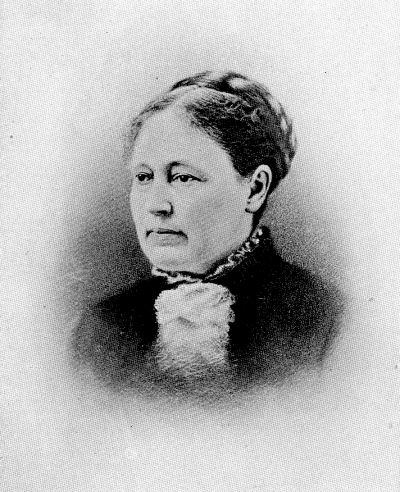This is a transcription of the Sarah S. (Bean) Reynolds biography from New Hampshire Women: A Collection of Portraits and Biographical Sketches of Daughters and Residents of the Granite State, Who are Worthy Representatives of their Sex in the Various Walks and Conditions of Life, The New Hampshire Publishing Co., Concord, NH, 1895, page 121.

Sarah S. (Bean) Reynolds
SARAH S. BEAN, daughter of Joshua and Mary L. Bean, was born in Salisbury, March 30, 1828. When she was six months old the family removed from Salisbury and established their home in Woodstock, Vt. Her parents were musical people, her mother being noted as a “counter ” singer (which means an octave above the present alto). She also evinced great aptitude for music, and was a singer from childhood. At the age of eighteen she went to Manchester, where she has ever since had her home, becoming the wife of William Reynolds of that city in January, 1849. In 1852 she began musical culture with Prof. George Wood of Concord. Subsequently she studied with Prof. Kreissman of Boston, and later with Prof. J. J. Kimball. Before and after the commencement of her musical studies she sang in different churches in Manchester, particularly at the Unitarian church, with which she was identified. She also sang for five years at the First Baptist church in Concord. Aside from this she sang extensively in concerts and conventions until 1875. In 1876 she commenced the study of elocution in a class of six, often called, by friends, the “Immortal Six.” September 22, 1877, her husband died at Magnolia-by-the-Sea. In November, 1879, the “Immortal Six,” desiring to read and study Shakespeare, joined unto themselves six other kindred spirits and organized the “Shakespeare Club.” This organization, of which Mrs. Reynolds was the first president, was the first Shakespeare club of Manchester, and the first woman’s club of any kind maintaining a continuous organization in that city up to the present time. She remained actively identified with the club until 1891, since when she has been an honorary member. In 1886 she began the study of Christian Science, but remained in the Unitarian Society until February, 1891, having been superintendent of its Sunday school the previous year. Her reason for giving up church and club, which had formerly been so dear to her, was that Christian Science had become dearer than all else.
